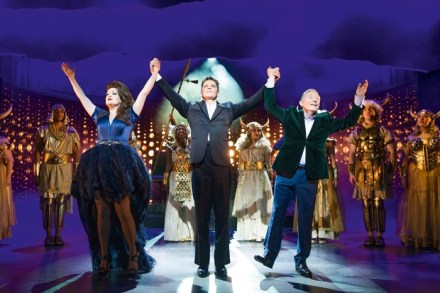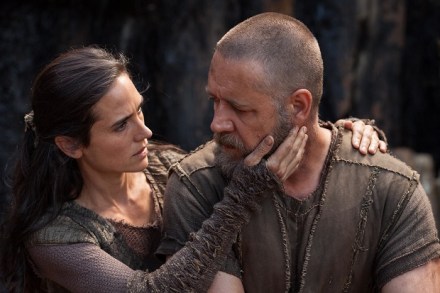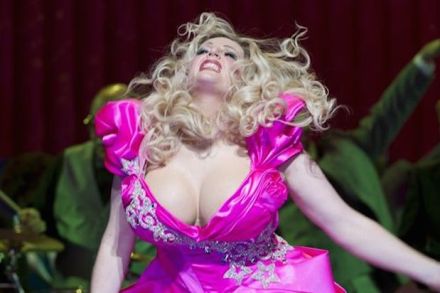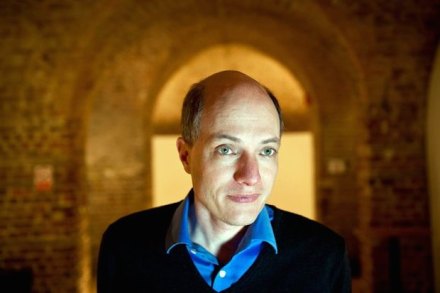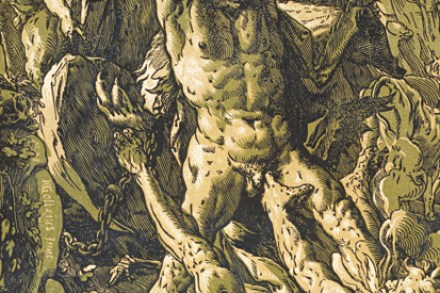Simon Cowell’s latest attempt at global domination
I Can’t Sing! is a parody of The X Factor, which already parodies itself at every turn. Quite a tough call. The heroine is an oppressed no-hoper stuck in a tiny caravan under the Westway with her crippled dad who lives in an iron lung. She longs for a chance to win stardom and wealth on a TV talent show. So this is the Cinderella story with a lot of grotesque and absurd modern detailing. Is it good? No. It’s spectacularly brilliant. A hit musical needs to get everything right and this one does just that. The sets are lavish and sumptuous. The costumes are razor-sharp parodies of underclass loser-wear.
